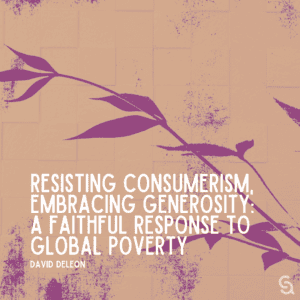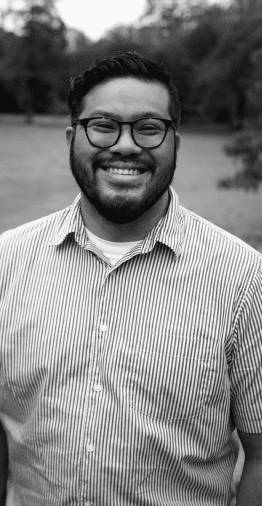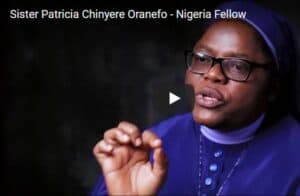 I admit that when I think of global poverty, my mind begins to spin, and discouragement begins to seep into my spirit. Like all complex issues, global poverty is a tangled web of generational and systemic challenges that have compounded over time.
I admit that when I think of global poverty, my mind begins to spin, and discouragement begins to seep into my spirit. Like all complex issues, global poverty is a tangled web of generational and systemic challenges that have compounded over time.
From the lingering effects of colonialism in global economics to the disproportionate burden of poverty on women, these realities feel so much bigger than me—or anything I could do.
It’s easy to get lost in systemic thinking: This is a problem for governments and multinational corporations—they need to get their act together.
And yet, my vocation as a Christian—to love God with all my heart, soul, mind, and strength, and to love my neighbor as myself—compels me to respond.
To borrow from CSA founder Ron Sider, I must ask myself: As a rich Christian in an age of hunger, how do I respond in a way that goes beyond easing my guilt or giving myself a pat on the back? How do I engage meaningfully and humbly with the reality of global poverty?
Acting against poverty in your city and in the global community can take a number of forms, like direct service or advocacy. And while those are potent ways to address poverty, the reality is that those responses require deep levels of commitment, an investment of time, and a building up of skills (perhaps even a new career trajectory).
I want to address people who care about global poverty but don’t know what initial steps to take—people who care, but perhaps for whom advocacy or direct service is not the appropriate next step. Borrowing a guiding principle from the Lazarus at the Gate Economic Discipleship Guide, I want to offer the following as a practical framework to respond to global poverty: grateful simplicity for the sake of just generosity.
I first encountered this principle as a senior in college during a retreat designed to help students prepare for life after graduation. Later, as a campus minister, I had the opportunity to teach these principles to students doing summer internships alongside the urban poor in Manila. Over the years, this simple phrase has shaped the way my family and I seek to be faithful stewards of our resources.
The most practical and immediate thing we can do in the face of global wealth inequality is to recognize our own resources and intentionally redistribute them. This is not a silver bullet for solving global poverty, nor are any single organization’s efforts perfect—but this practice is both effective and doable. Like any meaningful rhythm, it forms us even as we attempt to effect change in the world. This framework cultivates tangible generosity by practicing gratitude, which leads to intentional simplicity. And in choosing to live simply, we maximize our capacity for generosity.
How might this work practically?
Cultivate practices of gratitude.
Stand-up comedian Atsuko Okatsuka has a bit in her most recent special where she jokes, “There’s a corner in my house that I sometimes take the time to stand at, just because I pay rent. I’m always like…that’s $30 right here!”
While it might seem like a silly picture in your mind to see someone standing in random parts of their home just appreciating the space, I’d argue that this is an example of how gratitude might be cultivated! When we become more aware of how our resources are being used, or when we develop a deeper appreciation for simple things—like a walk, clean water from our faucets, or regular access to electricity—we start to see the world differently.
Gratitude helps guard us against being swept into the whims of conspicuous or unconscious consumerism. It enables simplicity.
Cultivate practices of simplicity.
How can we reduce unnecessary consumption or be more intentional about how and when we spend our money? Gratitude frees us to make decisions toward simplicity that resist the capitalist pressures to always have the newest, fastest, and cheapest thing.
As of December 2024, Americans spend an average of about $1000 on holiday presents each year. While everyone’s circumstance is different, and while gift-giving is certainly a legitimate way to express care and love for people, this level of spending—and the societal expectations behind it—can be problematic. If people are going broke over Christmas, our priorities might need some re-evaluation.
To push back against this, my family and I have tried a few things:
- Set different expectations for gifts. Instead of expecting multiple presents from multiple people, consider asking for one meaningful item that loved ones can contribute toward together.
- Create handmade gifts. For the past few years, I’ve made large batches of chili crisp to jar and send to my family in California. It’s something made with love, enjoyable, and it doesn’t just add clutter to their homes.
These small but intentional choices help us practice simplicity.
Cultivate practices of just generosity.
The hope is that living with intentional simplicity—or even going through a holiday season where we’ve spent less—will free up resources for generosity. This is where we get to decide where we want to give.
When thinking about global poverty, what weighs most heavily on your heart? Is it a specific region? A particular need? Organizations like Charity Water work to provide clean water as a fundamental human right. Oxfam takes a multifaceted approach to poverty, addressing it through policy, relief, and community programs.
Perhaps you want to spread your giving around. My wife and I have a line item in our monthly budget that is explicitly for giving toward time-sensitive developments around the world. Whether for humanitarian aid in Gaza, or giving toward mutual aid in the wake of the fires in Los Angeles, this money has been freed up for generosity. Websites like Charity Navigator can also help vet organizations, ensuring financial transparency and accountability.
Again, this is just one way to take immediate action against global poverty. It may start as a personal practice, but over time, it could become something you invite your community into. This process is as much spiritual as it is financial. My hope is that as we cultivate gratitude, we live with a simplicity that is both prophetic and freeing—one that allows us to be generous with our resources.
Further Resources:
United Nations Sustainable Development – Take Action
Rich Christians in an Age of Hunger – Ron Sider
Christians for Social Action – Addressing Global Poverty
 David de Leon is a doctoral student studying systematic theology at Fordham University in New York City. A child of Pilipino immigrants, David grew up in Vallejo, CA. For 12 years, he worked in university campus ministry. He has extensive experience in directing global justice immersion programs. In 2021, he received his Master of Divinity degree from Yale Divinity School. He writes, teaches, and reflects on Pilipino/Pilipino American/Asian/Asian American identity, faith, and colonial histories.
David de Leon is a doctoral student studying systematic theology at Fordham University in New York City. A child of Pilipino immigrants, David grew up in Vallejo, CA. For 12 years, he worked in university campus ministry. He has extensive experience in directing global justice immersion programs. In 2021, he received his Master of Divinity degree from Yale Divinity School. He writes, teaches, and reflects on Pilipino/Pilipino American/Asian/Asian American identity, faith, and colonial histories.


